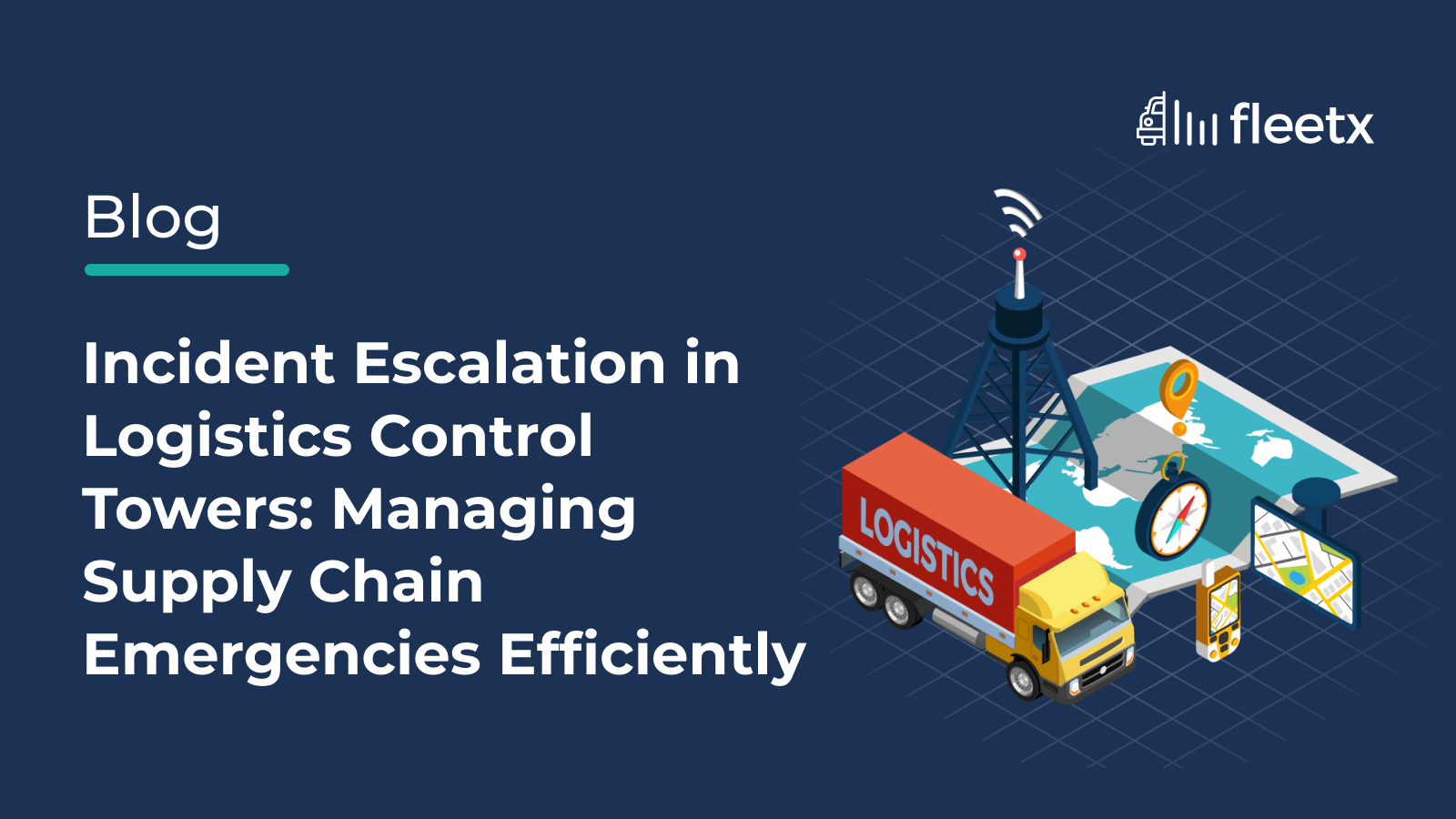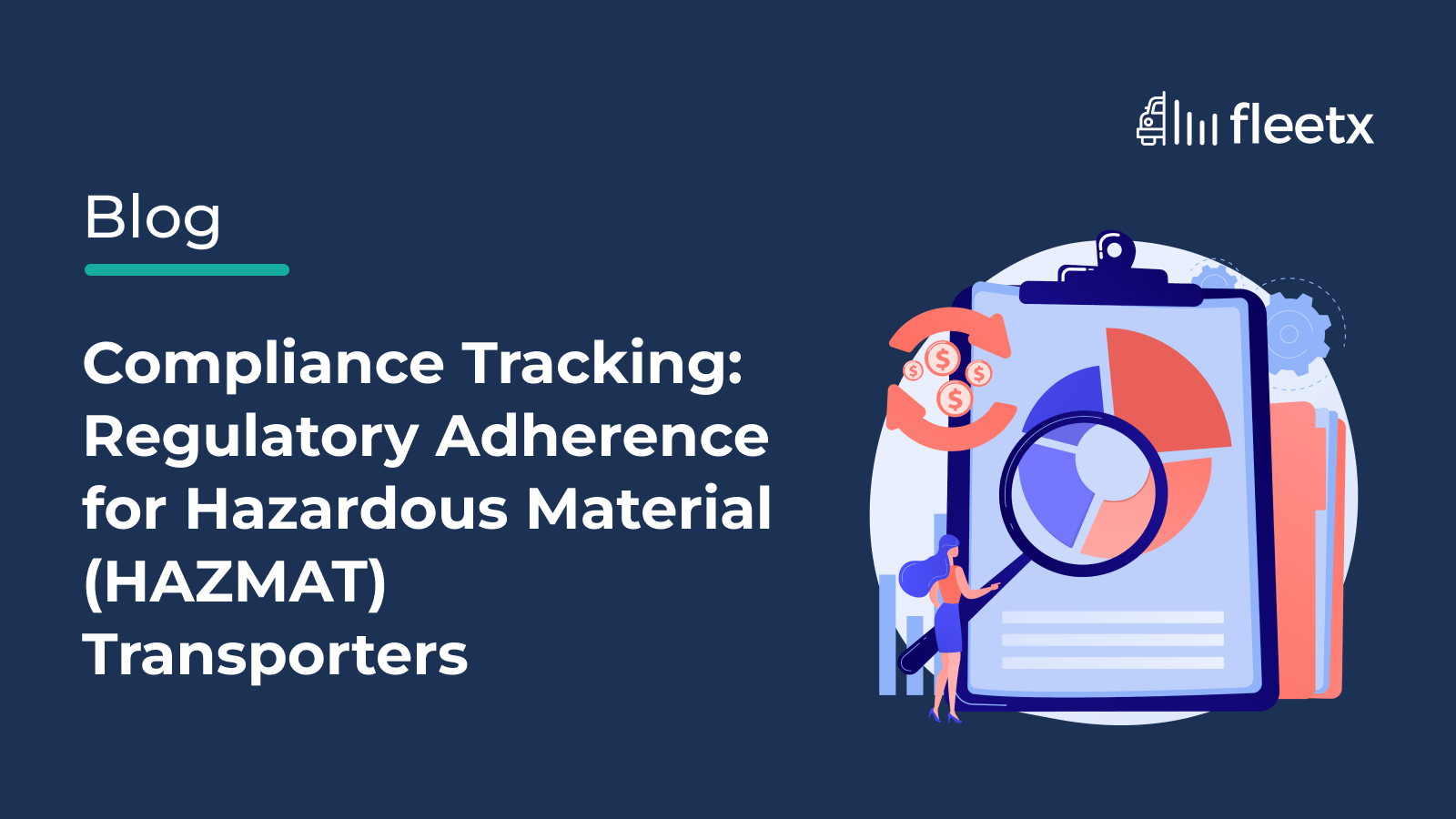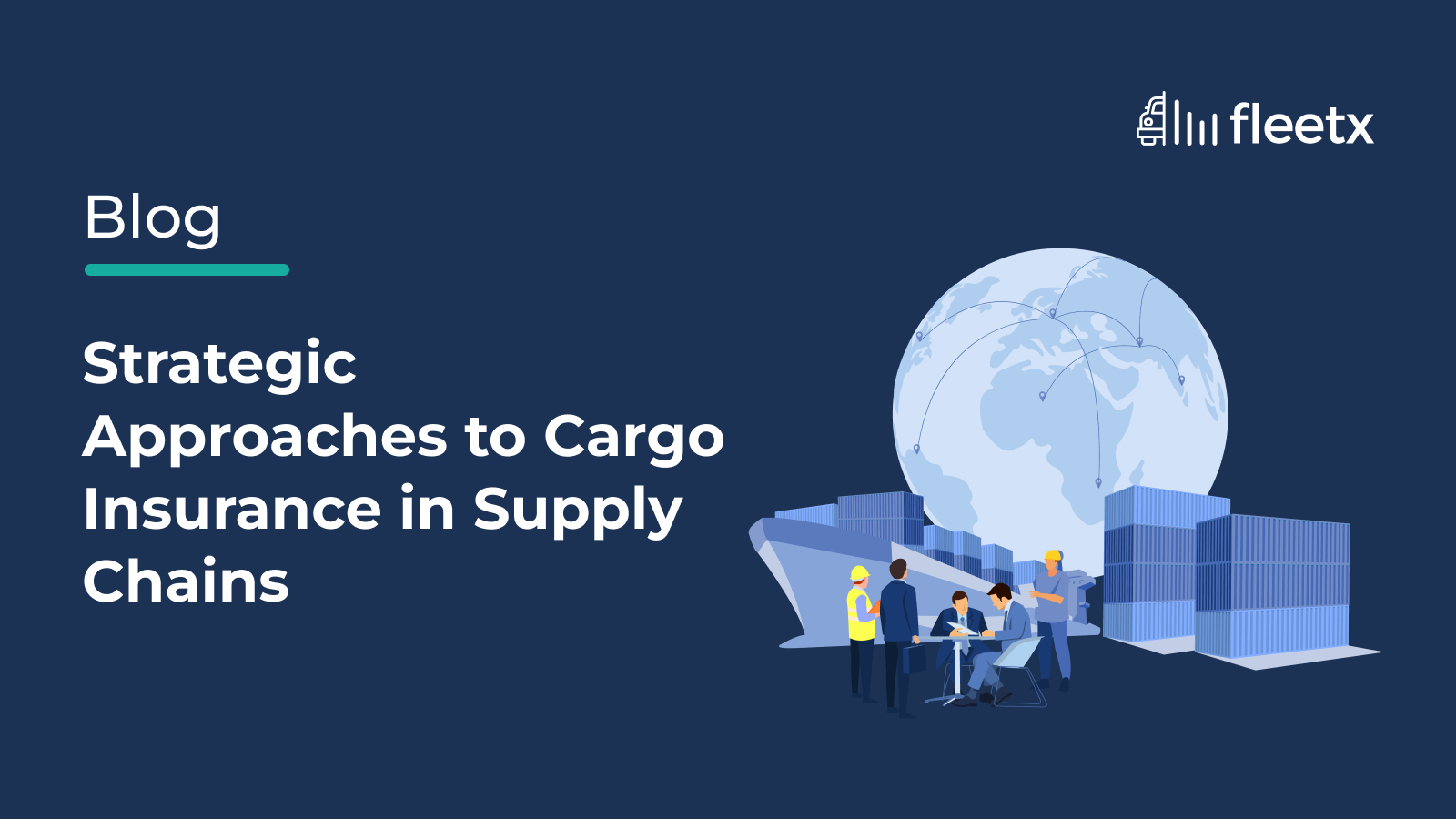
Logistics control towers function as the nervous system of supply chain operations. These centralized hubs provide end-to-end visibility, enabling businesses to monitor, manage, and optimize their supply chains. However, despite technological advancements, unforeseen incidents like delayed shipments, equipment breakdowns, or other disruptions can quickly escalate into emergencies, affecting entire operations.
Managing these incidents efficiently is crucial to maintaining seamless operations, minimizing losses, and preserving customer trust. With the help of smart technology solutions and AI-powered tools, companies like Fleetx are transforming how logistics control towers handle emergencies. In this article, we will explore the challenges of incident escalation and how innovative solutions can help the logistics industry overcome them.
What is the Challenge?
Logistics operations involve countless moving parts, including vehicles, warehouses, personnel, and customer demands. This complexity makes supply chains vulnerable to disruptions. Some of the common challenges faced during incident escalation include:
- Delayed Communication: During emergencies, communication breakdowns between teams can lead to delayed responses, compounding the issue.
- Lack of Real-Time Data: Without real-time insights, it becomes difficult to pinpoint the root cause of disruptions or track the cascading effects across the supply chain.
- Inadequate Planning: Pre-existing contingency plans may not account for every type of emergency, leaving teams scrambling for solutions.
- High Operational Costs: Unchecked disruptions often result in increased fuel consumption, rerouting expenses, and penalties for late deliveries.
- Customer Dissatisfaction: Failing to resolve issues promptly can damage customer relationships and brand reputation.
Given the growing complexity of supply chains, traditional methods of managing incidents are no longer sufficient. There is a pressing need for smarter, faster, and more integrated approaches.
Solutions
Technology and good management practices play a critical role in streamlining incident escalation processes. Below are some of the most effective strategies:
- Real-Time Visibility Through AI-Powered Platforms
AI-driven logistics platforms like Fleetx provide control towers with real-time visibility into supply chain operations. By aggregating data from GPS devices, IoT sensors, and transport management systems, these platforms create a unified view of the entire network. For example, if a vehicle carrying critical goods is delayed, the platform can immediately alert the stakeholders involved and suggest alternate routes.
Benefits:
- Early detection of potential issues
- Proactive responses to minimize or manage disruptions
- Optimized routes to reduce delivery times and fuel costs
- Predictive Analytics for Risk Mitigation
Predictive analytics use historical and real-time data to forecast potential risks before they escalate. For example, traffic patterns, and vehicle performance metrics can be analyzed to anticipate delays or equipment failures. AI tools can also prioritize high-risk incidents, enabling teams to focus on the most critical issues first.
Benefits:
- Reduced downtime through preventive maintenance
- Enhanced resource allocation
- Greater accuracy in contingency planning
- Automated Alerts and Workflows
During emergencies, speed is of the essence. Automated alert systems can notify relevant teams and stakeholders immediately when an issue arises. Integration with workflow management tools ensures that the right steps are taken without delay. As an example; if a vehicle breaks down, the system can automatically assign a replacement vehicle and update delivery schedules.
Benefits:
- Faster resolution times
- Reduced dependency on manual intervention
- Improved collaboration across teams
- AI-Powered Decision Support
AI systems can process vast amounts of data to suggest the most effective solutions during emergencies. Whether rerouting shipments, reallocating inventory, or adjusting delivery schedules, these tools empower decision-makers with actionable insights. AI algorithms can simulate different scenarios, helping teams evaluate the potential impact of their choices.
Benefits:
- Data-driven decision-making
- Minimized financial and operational risks
- Increased confidence in handling complex situations
- Integration With External Systems
To manage supply chain emergencies effectively, control towers need seamless integration with external systems such as traffic updates and third-party logistics providers. Fleetx’s smart technology solutions enable this connectivity, providing a holistic view of the logistics ecosystem.
Benefits:
- Improved situational awareness
- Collaborative problem-solving with partners
- Enhanced adaptability to external factors
Conclusion
Efficient incident escalation in logistics control towers is no longer a nice-to-have, but a necessity in today’s competitive world. By leveraging smart technology solutions like Fleetx’s Control Tower, businesses can transform how they manage supply chain emergencies. Real-time visibility, predictive analytics, automated workflows, and AI-powered decision support are revolutionizing the logistics landscape, making it more efficient and customer-centric.
As India’s logistics industry continues to evolve, companies that embrace these innovative solutions will not only navigate disruptions effectively but also gain a competitive edge. If you’re looking to enhance your supply chain operations and manage emergencies with greater efficiency, explore Fleetx’s advanced solutions today. Together, we can make India’s logistics ecosystem smarter, faster, and more reliable.






